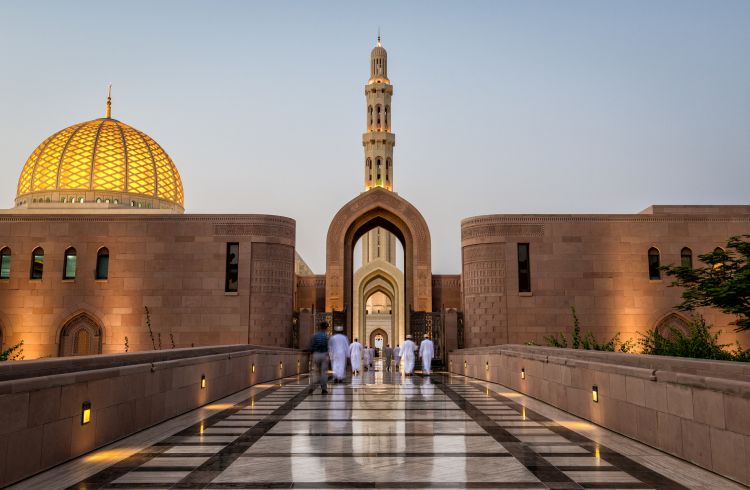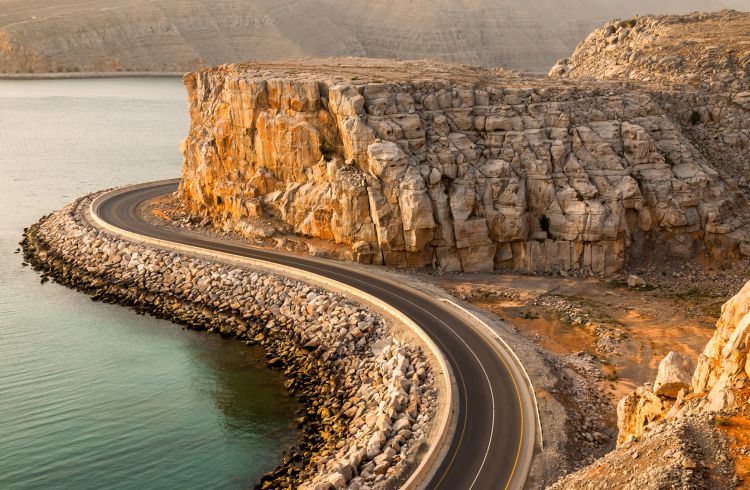Is Oman Safe to Visit? Essential Travel Safety Tips
What are the local laws in Oman? Is crime a problem? Despite being a safe and friendly place to travel overall, there are some risks for visitors. Find out what not to do and how to stay safe in Oman.
 Photo © Getty Images/Dale Johnson
Photo © Getty Images/Dale Johnson
Oman, a fascinating and beautiful destination in the Arabian Peninsula, is renowned for its safety and welcoming atmosphere. Despite its location in a region often highlighted for geopolitical tension, Oman stands out as a secure destination for travelers. However, it's important to stay informed about local laws and potential risks. Here's a comprehensive guide to help you navigate Oman safely.
- Is it safe for tourists in Oman?
- Is Oman safe as a woman?
- Important laws travelers should know
- Terrorism and security concerns
- Health risks
- Political climate and stability
Is it safe for tourists in Oman?
Yes. Oman remains one of the safest countries in the Middle East, characterized by its wealth, strict legal system, and the hospitality of its people. With a score of 0.0 on the Global Terrorism Index, the threat of terrorism is minimal. Although violent crime is rare, and petty crime rates are low, robbery and car theft do sometimes occur, and occasional assaults against those camping in remote areas have been reported. To ensure your safety:
- Secure your valuables: Always keep your belongings secure and be vigilant, particularly in busy areas.
- Do not leave vehicles unattended.
Emergency numbers
For police, fire and rescue, and medical emergencies, call 9999.
Is Oman safe as a woman?
Oman is considered quite safe for women travelers, including solo women travelers. Omanis are overall friendly and respectful towards women. Nonetheless, there have been incidents of harassment or assault. Women should dress modestly to avoid unwanted attention and avoid walking alone at night – opt for taxis instead.
Important laws travelers should know
Oman’s legal framework, rooted in Islamic law, is strict, and violations can lead to severe penalties. Here’s what you need to know:
- Dress modestly: While women are not required to cover their heads, both men and women should wear conservative clothing that covers you from the shoulders to below the knee. If visiting the Grand Mosque in Muscat, women must wear a headscarf, long sleeves, and pants or skirts that cover the ankle.
- Drug laws: Oman has a zero-tolerance policy on drugs. Penalties for possession or trafficking are severe, with potential prison sentences or even the death penalty for serious offenses.
- Photography: Avoid taking pictures of government buildings, military sites, and airports. Always seek permission before photographing locals.
- Drone regulations: Flying drones recreationally is illegal, with penalties including a steep fine and confiscation of the drone. Commercial drone flights require a permit, which must be obtained 15 days before the flight and received before entering the country. As of December 1 2024, all drone operators must show proof of training from a Civil Aviation Authoriity-approved organization.
- Lese Majeste: Insulting the royal family or government officials is a criminal offense.
- Homosexuality: Homosexuality is illegal and punishable by imprisonment of up to three years. Any public displays of affection between same-sex couples should be avoided.
- Public behavior: Offensive behavior and language in public and on social media are prohibited. Even making a rude gesture at someone while driving may get you in trouble. Public displays of affection between straight couples are a no-no, too.
- Alcohol consumption: The legal drinking age is 21, and public intoxication or drinking alcohol in public places is prohibited.
- Unmarried couples: If you are unmarried, sharing a hotel room with a member of the opposite sex is illegal. Most accommodations won’t inquire about marital status, but discretion is advised.
Health risks
There is a risk of dengue, malaria, and other insect-borne diseases in Oman due to high temperatures and humidity. Use insect repellent and wear long, lightweight clothing to reduce the likelihood of bites.
Oman can experience intense heatwaves (up to 120°F / 49°C) in the summer months. Stay hydrated and avoid being outdoors in the midday heat.
The quality of medical facilities and treatment in Oman is high. Keep in mind that travelers who don't have travel insurance and/or the means to pay their medical bills may be kept from leaving the country until payment is settled.
Terrorism and security concerns
While Oman is less affected by terrorism than its neighbors, the threat remains. Groups such as Al-Qaeda and Daesh are active in the Arabian Peninsula, though attacks in Oman are relatively rare. To stay safe:
- Monitor travel advisories: Keep updated with the latest government travel advisories and news reports.
- Be aware of your surroundings: Remain vigilant, especially in crowded or sensitive areas.
Political climate and stability
Oman enjoys a stable political environment due to its neutral stance in regional conflicts. However, its proximity to volatile areas like Yemen and Saudi Arabia means:
- Avoid border areas: Travel advisories typically warn against visiting the border regions with Yemen due to ongoing conflict.
- Steer clear of protests: While most protests are peaceful, avoid large gatherings and demonstrations, particularly near the UAE border where tensions have occasionally escalated.
Oman offers an enriching travel experience, with its blend of cultural heritage and modern comforts. By understanding and respecting local laws and customs, you can enjoy a safe and memorable visit. Always stay informed and aware to make the most of your visit.
Related articles
Simple and flexible travel insurance
You can buy at home or while traveling, and claim online from anywhere in the world. With 150+ adventure activities covered and 24/7 emergency assistance.
Get a quote

No Comments